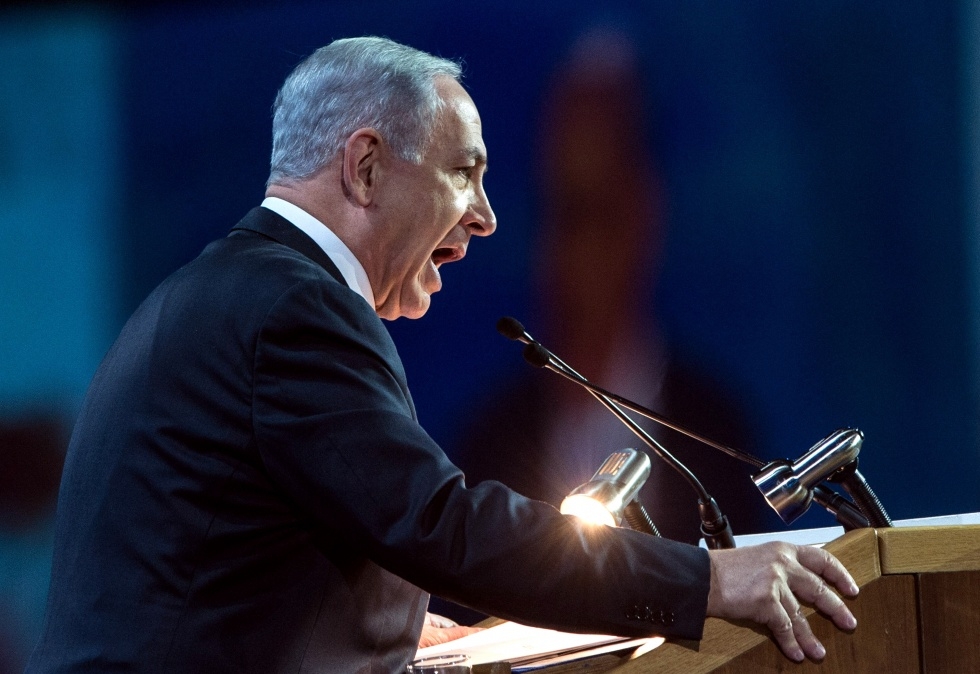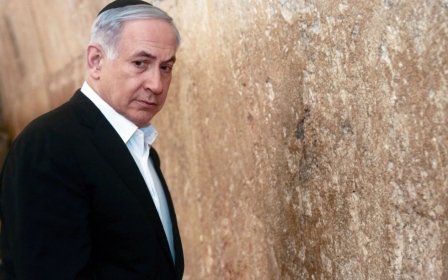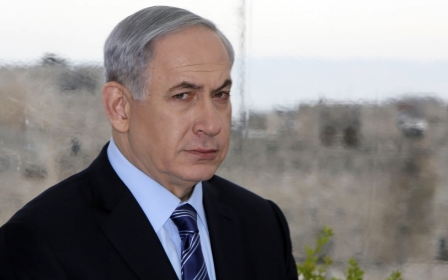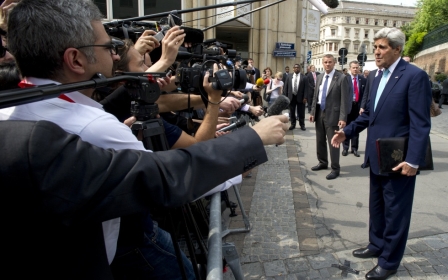US-Israel ties strong despite rift over Iran nuclear talks: Netanyahu

Israeli Prime Minister Benjamin Netanyahu told a pro-Israel lobby in Washington DC on Monday that his relationship with the US remains strong.
Netanyahu asked delegates at the annual conference of the American Israel Public Affairs Committee (AIPAC) to “tell the world that reports of the demise of the US relationship are not only premature, but also wrong”.
Relations with the US, traditionally a staunch ally and key trade partner of Israel, have suffered in recent weeks as Netanyahu lobbies against US efforts to reach a deal with long-time Israeli foe Iran over its nuclear programme.
Monday’s speech by the Israeli Prime Minister, who is seeking re-election at a snap ballot on 17 March, came a day ahead of his planned address to Congress.
Netanyahu is expected to criticise White House foreign policy and push for the US to halt negotiations with Iran, which is seeking an easing of punishing economic sanctions in exchange for a climbdown on their controversial nuclear programme.
Netanyahu was not invited by US President Obama to undertake this visit, which the Israeli premier described as “historic,” and the trip has been criticised as a breach of diplomatic protocol.
Ahead of the speech, Kerry sent out a strong public warning against any party disclosing details of the latest talks between Iran and the bloc known as P5+1, consisting of the US, Russia, China, the UK, France and Germany.
"We are concerned by reports that suggest selected details of the ongoing negotiations will be discussed publicly in the coming days," Kerry told reporters in the Swiss city of Geneva.
"I want to say clearly, doing so would make it more difficult to reach the goal that Israel and others say they share in order to get a good deal. Israel's security is absolutely at the forefront of all our minds but rightly so is the security of all the other countries in the region, so is our security in the United States".
Tuesday’s controversial speech to Congress was set up by Israeli envoy to the US Roy Dermer, whom Netanyahu praised on Monday as “a man who knows how to take the heat,” a reference to the diplomatic tension over the upcoming address.
Acknowledging that US-Israeli relations have suffered as a result of tension over Israel's opposition to the ongoing nuclear negotiations, Netanyahu was adamant that the relationship will survive.
“Our friendship will weather the current disagreement, as well as grow even stronger in the future…because we share the same dreams”.
Analyst Trita Parsi, president of the Iranian American Council, said on Monday that “the very notion of a deal involving the US and Iran” is seen as a major threat by Israel’s leaders.
Netanyahu has consistently opposed any deal that would allow Iran to continue its nuclear programme, which it says will be used solely to boost electricity production.
Despite the current rift between the transatlantic allies, US Secretary of State John Kerry publicly defended Tel Aviv on Monday, accusing the UN of being “obsessed” with Israel.
Addressing the UN Human Rights Council on Monday in Geneva, Kerry said “no one in this room can deny that there is an unbalanced focus on one democratic country”.
“It must be said that the HRC’s obsession with Israel actually risks undermining the credibility of the entire organisation,” citing the fact that Israel is the only permanent item on the body’s agenda.
The UNHRC has launched a probe into last summer’s military bombardment of the Gaza Strip by the Israeli military, which killed over 2,000 Palestinians dead, mostly civilians, and at least 70 Israelis, mostly soldiers.
Middle East Eye propose une couverture et une analyse indépendantes et incomparables du Moyen-Orient, de l’Afrique du Nord et d’autres régions du monde. Pour en savoir plus sur la reprise de ce contenu et les frais qui s’appliquent, veuillez remplir ce formulaire [en anglais]. Pour en savoir plus sur MEE, cliquez ici [en anglais].




